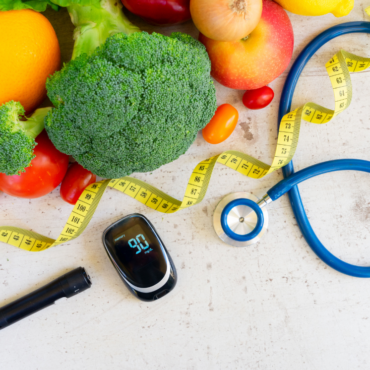Managing diabetes is a 24/7 responsibility — and that includes your bedtime routine. The actions you take before sleep can greatly influence your overnight blood sugar levels and your overall diabetes control. Here’s a helpful nighttime checklist for people living with diabetes.
1. 🩸 Check Your Blood Sugar Before Bed
Monitoring your blood sugar before sleep helps prevent unexpected highs or lows during the night.
-
Target Range: 80 to 180 mg/dL is often recommended, but always follow your doctor’s advice.
-
Tip: If you’re prone to nighttime lows, a small healthy snack may help maintain stable levels overnight.
2. 🌅 Watch Out for the “Dawn Phenomenon”
Some people experience early morning spikes in blood sugar, known as the dawn phenomenon.
-
What Happens: Hormonal changes can cause glucose to rise between 2 a.m. and 8 a.m.
-
Prevention: Speak to your doctor about medication timing or adjusting your evening meal.
3. 🍽️ Avoid Heavy or High-Sugar Meals Late at Night
Late-night high-carb meals or sugary snacks can lead to elevated glucose levels during sleep.
-
Better Choice: A balanced snack with protein and fiber, like Greek yogurt with nuts or a boiled egg with whole-grain toast.
4. ☕ Skip Caffeine and Alcohol Before Bed
-
Caffeine: Can keep you awake and may affect blood sugar.
-
Alcohol: Might lower blood sugar overnight, especially if consumed without food.
-
Solution: Choose herbal tea or water in the evening hours.
5. 🚶♂️ Take a Light Evening Walk
A gentle 15–30 minute walk after dinner can help reduce post-meal blood sugar spikes and aid digestion.
-
Bonus: It promotes better sleep quality too!
6. 🧘 Create a Calming Bedtime Routine
Managing stress helps regulate blood sugar and improves sleep.
-
Relaxing Activities: Light stretching, reading, listening to calm music, or meditating can prepare your body for restful sleep.
7. 🛌 Prepare Your Sleep Environment
-
Keep it Cool & Dark: A quiet, cozy space improves sleep quality.
-
Limit Screen Time: Blue light from phones or TVs can disrupt your natural sleep hormones.
8. 📝 Track Patterns and Symptoms
Keep a bedtime log of your:
-
Blood sugar levels
-
Meals/snacks
-
Activity
-
Sleep quality
This helps spot trends and allows your healthcare provider to make better adjustments.
🩺 Final Thoughts
Your nighttime routine plays a key role in how well you manage diabetes. With a few mindful habits, you can improve both your sleep and your blood sugar levels. Always consult your doctor for personal advice tailored to your condition.
✨ Stay balanced, sleep better, and manage your diabetes with confidence — only on MyDiabetesSuperfine.com 💙




Add Comment